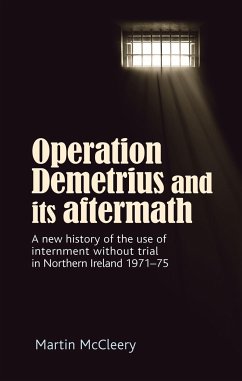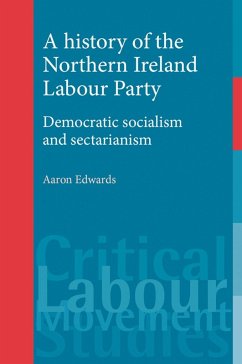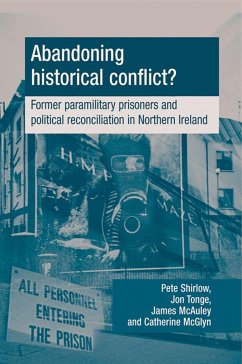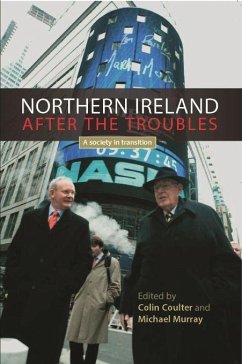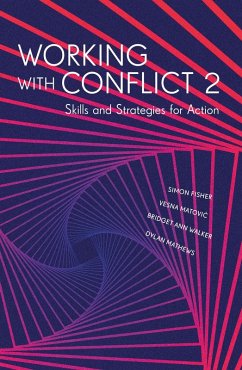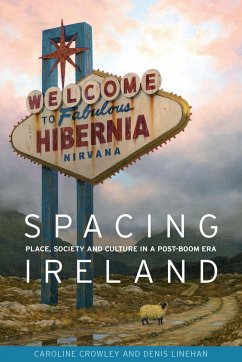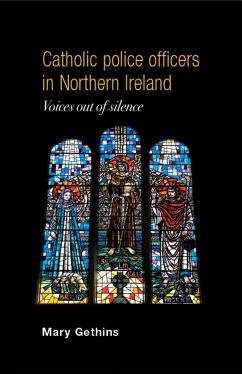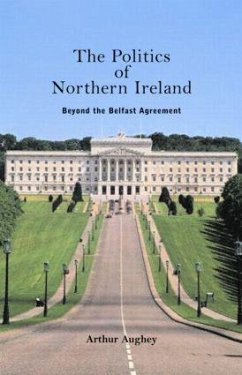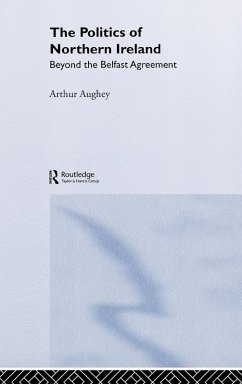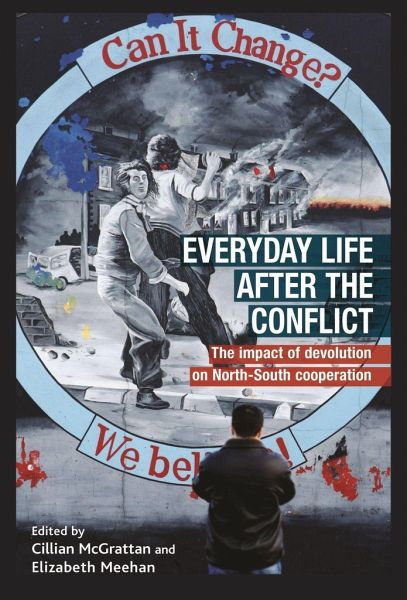
Everyday Life After the Conflict CB
The Impact of Devolution and Cross-Border Cooperation
Herausgeber: Mcgrattan, Cillian; Meehan, Elizabeth

PAYBACK Punkte
69 °P sammeln!
Everyday life after the Irish conflict is the first book to address the specific topic of the intersection of the processes of conflict transformation and devolution with daily life in Northern Ireland in a rigorous and systematic fashion. Bringing together new research from established academics, new voices and civil society actors, this book documents the changes that have occurred in people's everyday lives as the region moves away from a violent past. The establishment of new constitutional arrangements designed to overcome conflict is not the same as building a peaceful and inclusive soci...
Everyday life after the Irish conflict is the first book to address the specific topic of the intersection of the processes of conflict transformation and devolution with daily life in Northern Ireland in a rigorous and systematic fashion. Bringing together new research from established academics, new voices and civil society actors, this book documents the changes that have occurred in people's everyday lives as the region moves away from a violent past. The establishment of new constitutional arrangements designed to overcome conflict is not the same as building a peaceful and inclusive society that transforms the everyday lives of people. With this in mind, this book asks several questions that have up until now gone under-researched: How have unprecedented transformations in the political culture and economic well-being of Northern Ireland impacted upon various aspects of people's lives? What have these changes meant for such politically charged issues as health care, employment, education, segregated living, gender and socio-economic inequality? What improvements to people's day-to-day lives have occurred and what more needs to be done? Supported with a wealth of new empirical material, the book charts the impact of devolution and conflict transformation in four parts: an overview of the changes is followed by chapters that explore the areas of space, place and human relations. The third part looks at economic and social life while a concluding chapter takes a comparative approach by addressing the differences and similarities between the Northern Irish and Scottish experiences.




